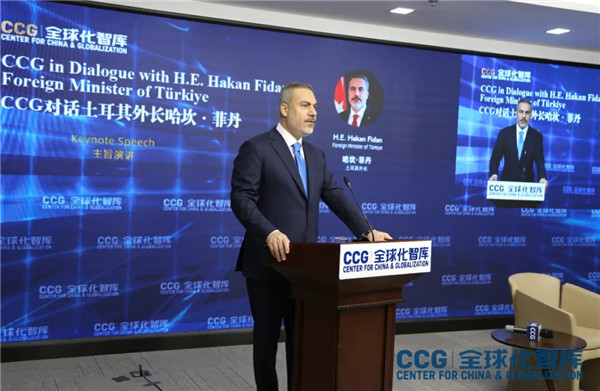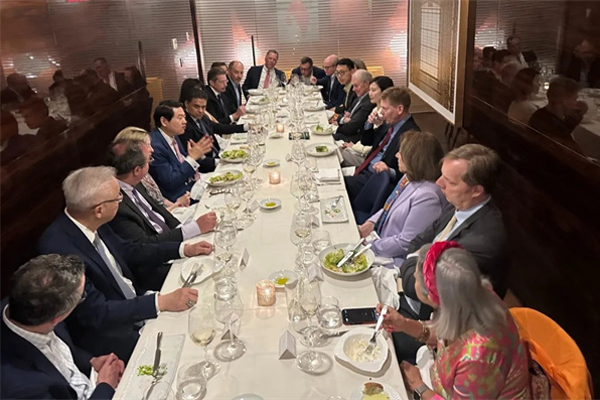CCG Engaged in Track II Diplomacy Holding Roundtable Meeting on US Capitol Hill
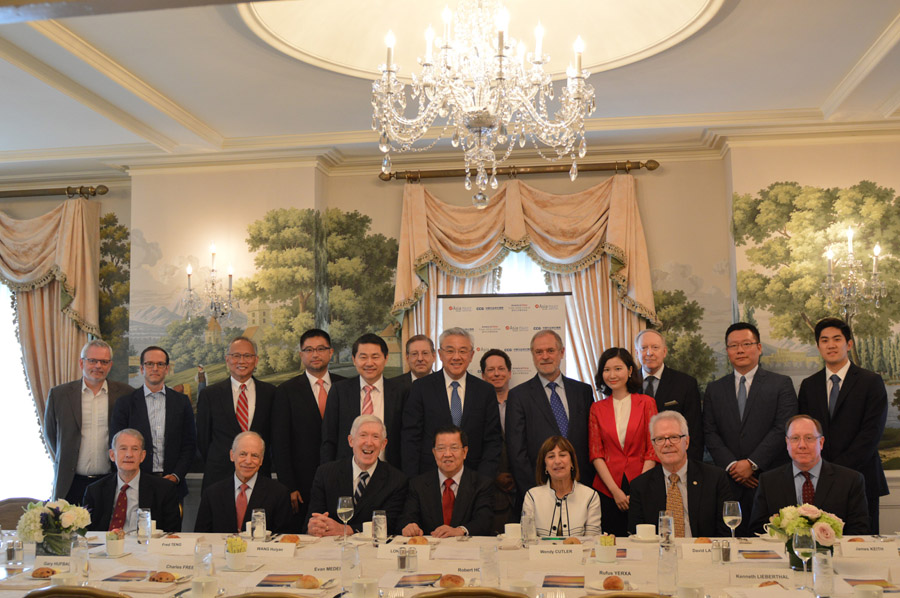
The Center for China and Globalization joined the Asia Society together with America and China Public Affairs Institute had hosted a luncheon roundtable on September 10 at the US Capitol Hill to discuss China-US relations and trade issues. It is another key event of CCG’s Track II diplomacy effort to push forward bilateral dialogue and cooperation between these two biggest economies.
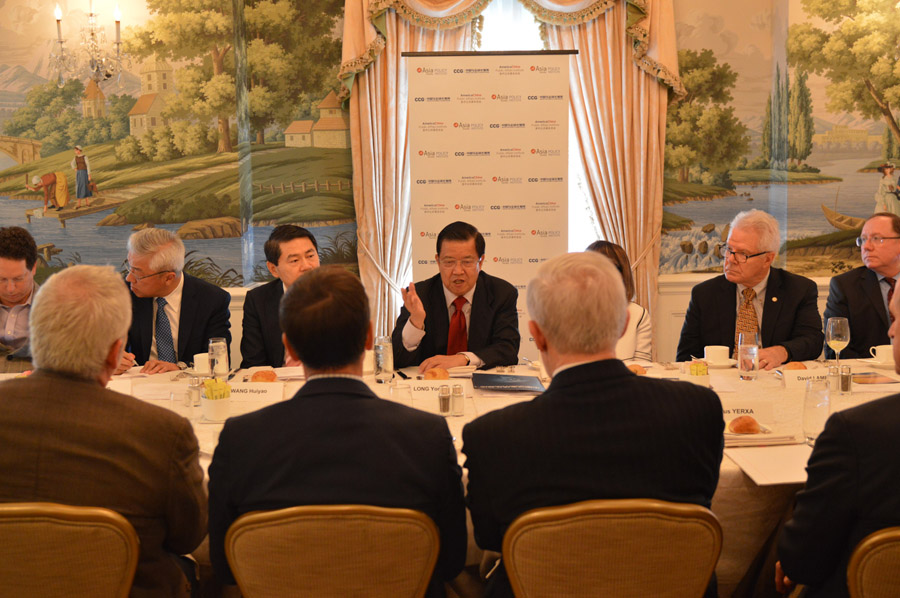
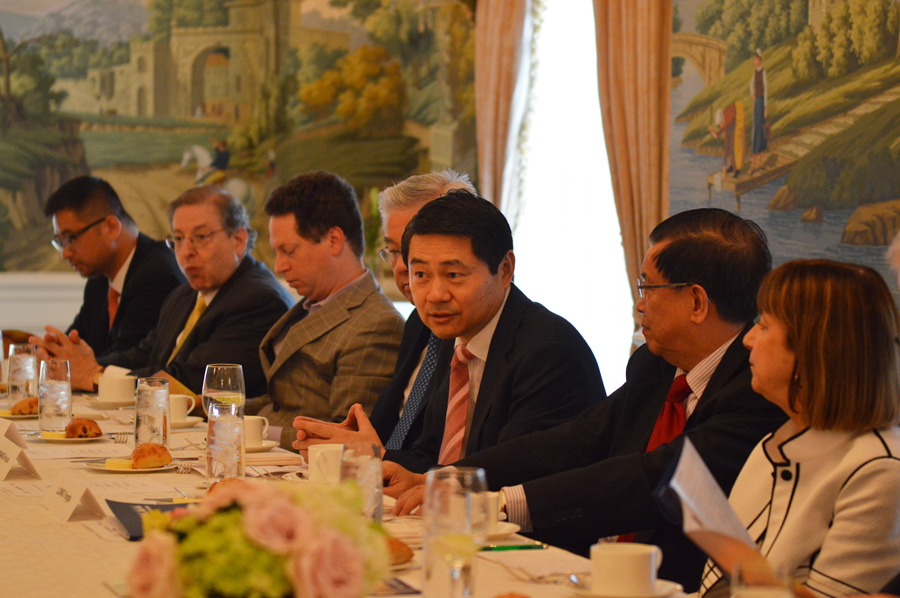
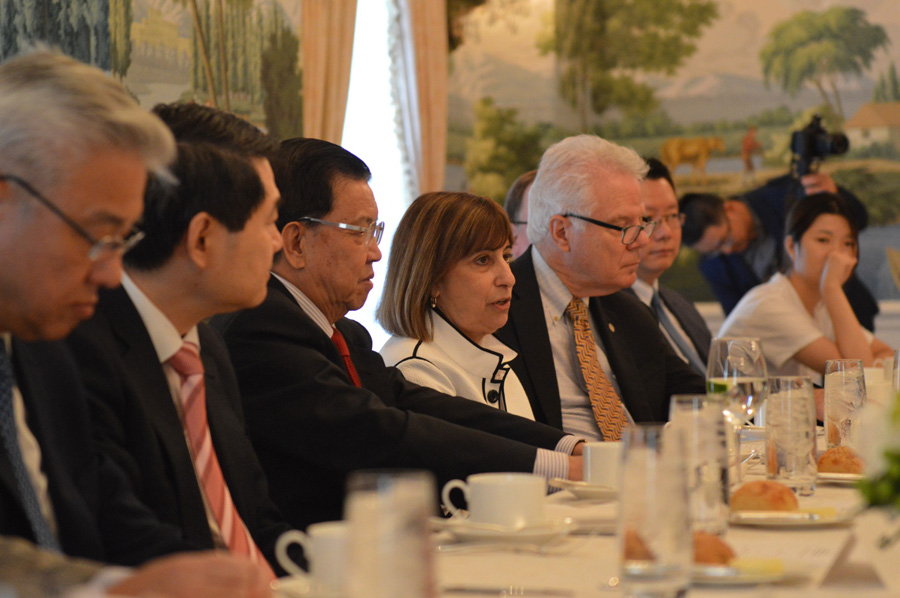
Over 20 prominent US former politicians and scholars attended the event and enthusiastically engaged in the discussion about the issues including bilateral investment treaty prospect, what will be the stance for China towards TPP in the future, the impact of China’s economic reform in the next five years on bilateral relations, global effort to tackle overcapacity in iron and steel industry, US investment environment for Chinese companies, and bilateral cooperation to cope with de-globalization.
The event took place as Chinese and US governments are preparing another round of BIT negotiation in Washington, D.C., in the hope that it can be concluded before President Barack Obama leaves the White House. By far, China and the United States have been gone through 28 rounds of negotiations since the proposal kicked off in 2008. CCG President Wang Huiyao believes the roundtable discussion was very timely to allow Chinese and American think tanks to thoroughly exchange their ideas and opinions about the prospect of bilateral trade relations.
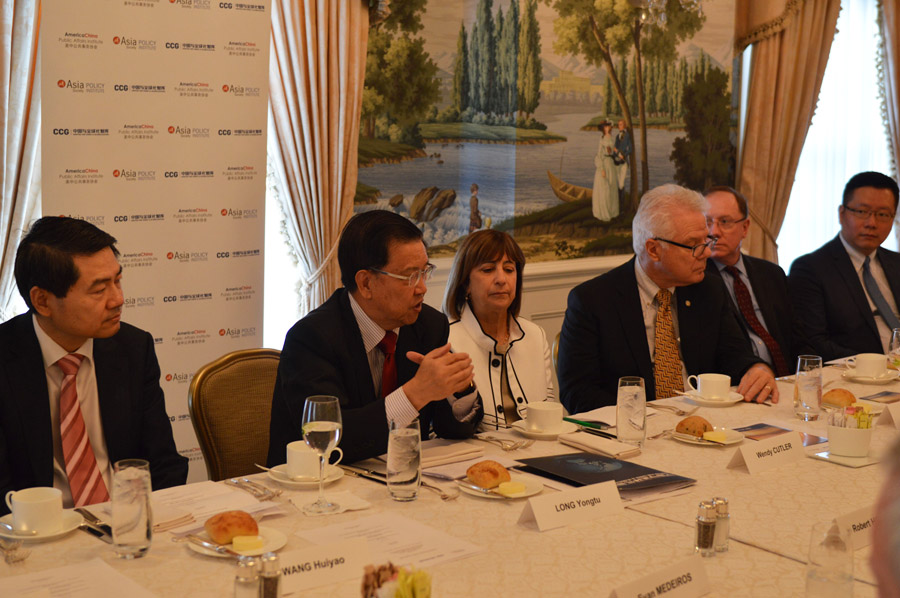
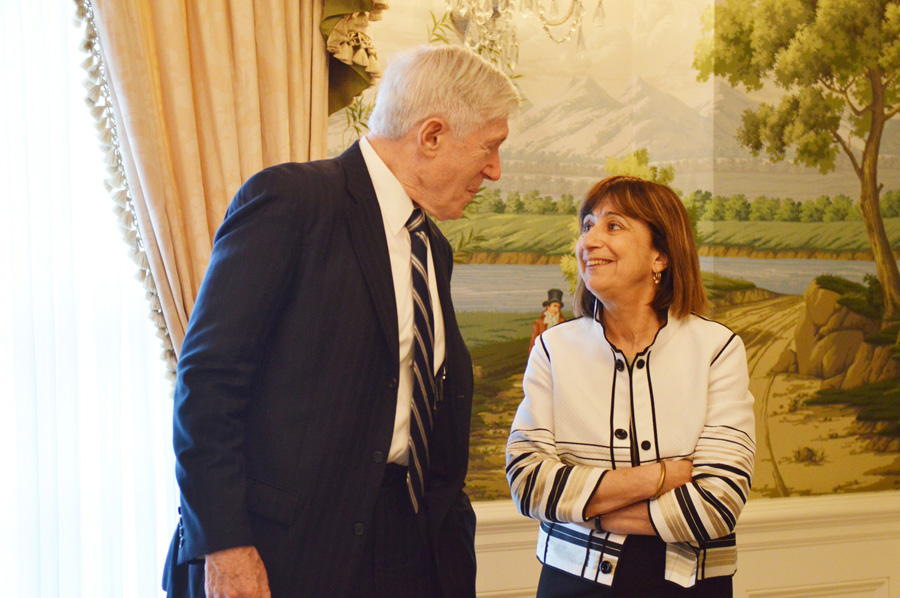
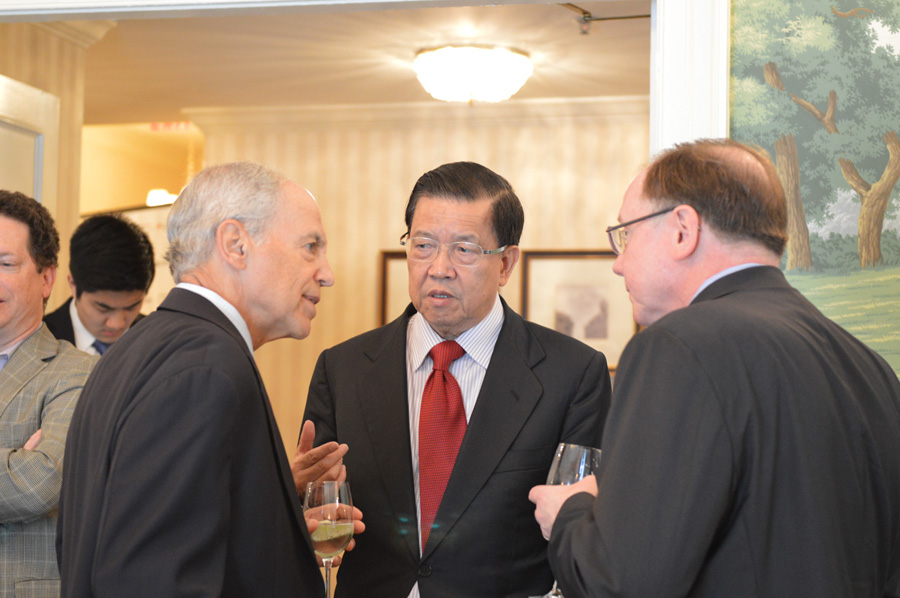
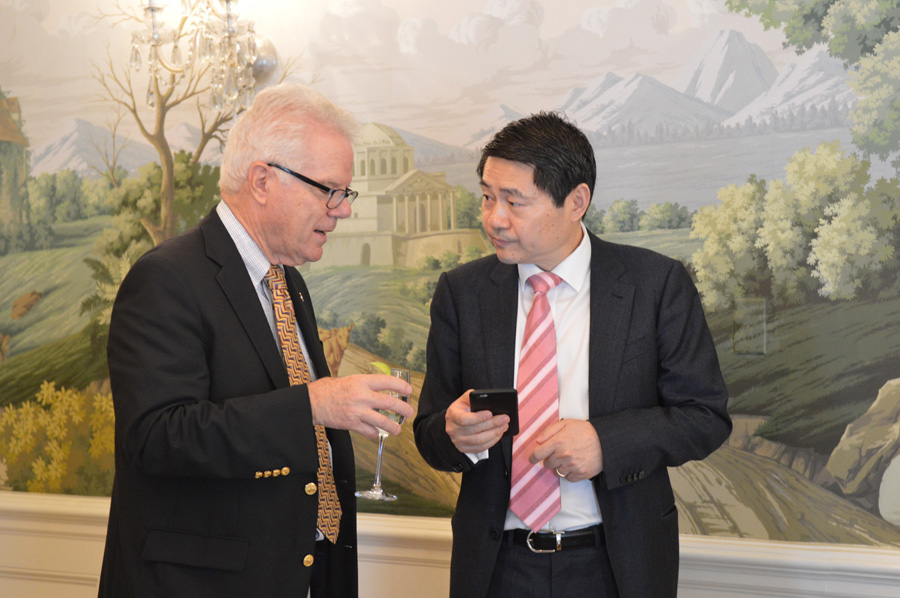
When commenting on the reality that both US presidential candidates object against TPP, Wang suggested that China and the United States can consider building a larger-scale multilateral system to include all members of TPP and Regional Comprehensive Economic Partnership (RCEP), which may benefit all the countries in Asia Pacific Region.
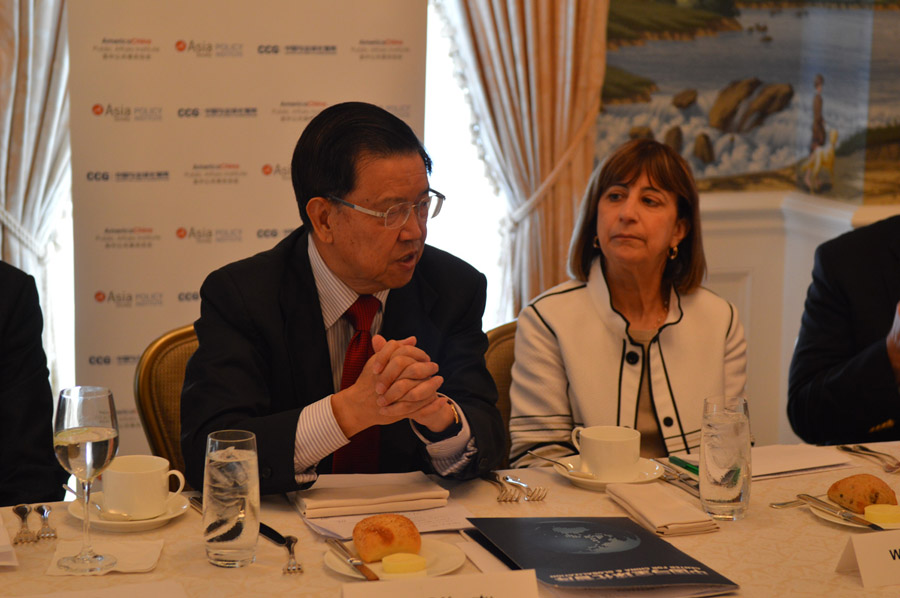
Long Yongtu, former Vice Minister of Commerce and the Chairman of CCG’s Strategic Advisory Board, mentioned during his keynote speech that the two governments will start a new round of BIT negotiations in the coming week later in September, showing that Obama Aministration still wish to to finalize the treaty before he leaves office. To make more progress, both sides should resolve their disputes in the issues such as government support for SOEs and find common solutions.
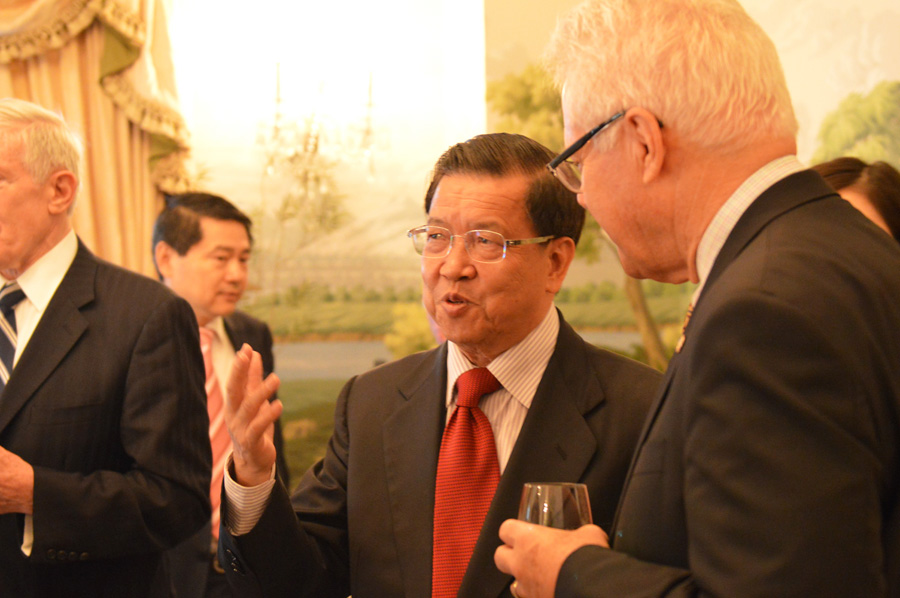
Long noted that trade agreement is in general beneficial to all public and companies. However some may suffer from loss in such a process. Chinese government is responsible in giving some assistance for those industries and laid-off workers. . China has set a good example in this regard and barely seen de-globalization and anti-opening up movement.
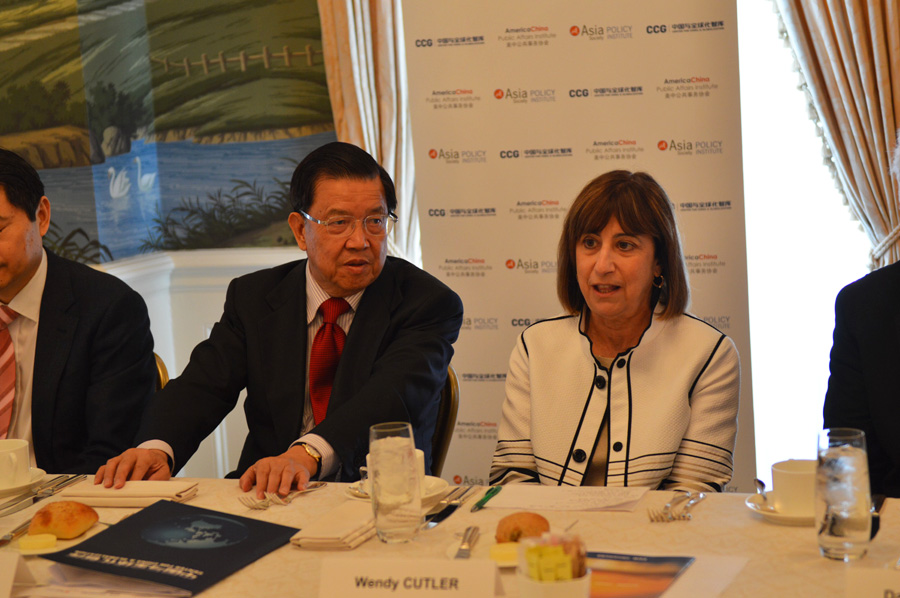
In meantime, Long believes TPP will continue to exist despite objection heard from US presidential elections. In the future, China and other economies in Asia Pacific region may join TPP, making it a foundation and framework for Asian Pacific free trade treaty. US-led TPP should be correlated with RCEP to ensure the stability of trade relations in the entire Asian Pacific region.
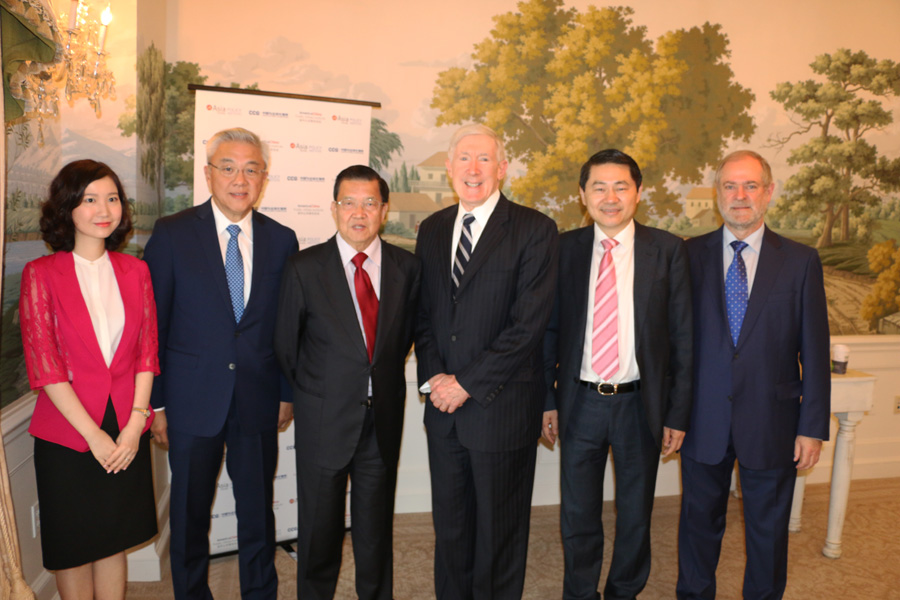
Long stressed the need to overcome obstacles in the process of globalization, without which China will lose the momentum for its opening- up policy. It is one of the reasons why CCG was established and engaged in Track II diplomacy activities – to expanding networks and partnership to make China’s voice heard by international communities.
US participants include:
- Robert Hormats, Vice Chairman of Kissinger Associates and former Under Secretary of State;
- Wendy Cutler, Vice President of Asia Society Policy Institute and former Acting Deputy U.S. Trade Representative;
- David Lampton, Director of China Studies at SAIS at the Johns Hopkins University and Former President of the National Committee on United States-China Relations;
- Kenneth Lieberthal, Senior Fellow in Foreign Policy and Global Economy and Development at the Brookings Institution;
- Evan Medeiros, Former Special Assistant to the President and Senior Director for Asian Affairs at the White House’s National Security Council (NSC) ; Gary Hufbauer, Senior Fellow at the Peterson Institute for International Economics ;
- Henry Levine, Senior Advisor at the Albright Stonebridge Group and former Deputy Assistant Secretary of Commerce for Europe and Asia;
- James Dorn, Vice President for Monetary Studies at Cato Institute
- James Keith, former Consulate General of the United States to Hong Kong, China Rufus Yerxa, President of National Foreign Trade Council and former US Deputy Director General to WTO;
- Karan Bhatia, Vice President and Senior Counsel for Global Government Affairs & Policy for General Electric and former Deputy U.S. Trade Representative
- Fred Teng, President of America China Public Affairs Institute and Senior US Representative of the China United States Exchange Foundation
LocationUnited States

